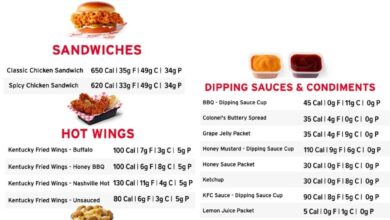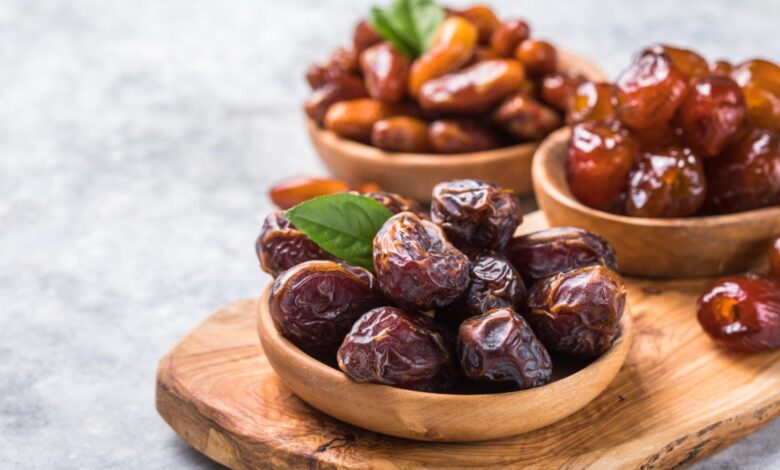
How to Eat Dates: A Guide to This Delicious and Nutritious Fruit
How to eat dates? It’s a question that might seem simple, but there’s a whole world of possibilities when it comes to this sweet and chewy fruit. Dates are more than just a snack; they’re a powerhouse of nutrients, packed with fiber, potassium, and antioxidants.
Whether you’re a seasoned date enthusiast or just starting to explore their deliciousness, this guide will take you on a journey from basic preparation to creative culinary uses.
We’ll dive into the fascinating history of dates, explore their different varieties, and discover how to soften them to perfection. From breakfast bowls to decadent desserts, you’ll find endless ways to incorporate dates into your daily meals. And don’t worry, we’ll address any potential concerns about sugar content and allergies, ensuring you can enjoy dates guilt-free and with confidence.
Introduction to Dates
Dates, the sweet and chewy fruit of the date palm tree, have been a staple food in the Middle East and North Africa for centuries. They are a nutrient-rich and versatile fruit that can be enjoyed in various ways, from fresh to dried and processed.
Dates are a versatile fruit that can be enjoyed in many ways. You can eat them straight from the package, add them to smoothies, or even use them to make delicious desserts. If you’re looking for a more savory way to enjoy dates, try incorporating them into a sustainable seafood sushi bowl.
Check out sustainable seafood sushi bowls for some delicious and eco-conscious inspiration. The sweetness of dates complements the savory flavors of the sushi, and the texture adds a delightful contrast. Whether you prefer sweet or savory, dates are a delicious and nutritious addition to any meal.
Nutritional Value of Dates
Dates are an excellent source of essential nutrients, making them a valuable addition to a healthy diet. They are particularly rich in:
- Carbohydrates:Dates are a good source of natural sugars, providing quick energy.
- Fiber:Dates are high in dietary fiber, which aids digestion and promotes satiety.
- Potassium:Dates are rich in potassium, an essential mineral that helps regulate blood pressure and muscle function.
- Iron:Dates contain a significant amount of iron, which is crucial for red blood cell production and oxygen transport.
- Antioxidants:Dates are rich in antioxidants, which help protect cells from damage caused by free radicals.
Different Varieties of Dates
The date palm tree produces a wide variety of dates, each with its unique characteristics in terms of flavor, texture, and sweetness. Some popular varieties include:
- Medjool Dates:These are large, soft, and intensely sweet dates with a rich, caramel-like flavor. They are considered the most premium variety and are often enjoyed as a snack or used in desserts.
- Deglet Noor Dates:These dates are semi-dry, with a firm texture and a slightly less intense sweetness than Medjool dates. They have a delicate flavor and are commonly used in baking and as a natural sweetener.
- Ajwa Dates:These dates are small, soft, and have a unique, slightly smoky flavor. They are highly prized in the Middle East and are believed to have medicinal properties.
- Zahidi Dates:These dates are small, firm, and have a mild sweetness. They are commonly used in baking and as a natural sweetener.
History of Date Consumption
Dates have been cultivated and consumed for thousands of years, dating back to ancient Mesopotamia. The date palm tree is believed to have originated in the Middle East and has been a vital source of food and sustenance for civilizations throughout history.
Dates were highly valued for their nutritional value, versatility, and ability to survive in harsh desert environments.
Preparing Dates for Consumption: How To Eat Dates
Dates can be enjoyed fresh, but sometimes a little preparation can enhance their flavor and texture. Whether you prefer them soft and chewy or firm and slightly crunchy, there are several methods you can use to prepare dates for consumption.
Softening Dates
Softening dates can be achieved using various techniques, each with its own advantages and drawbacks. Here are some popular methods:
- Soaking:This is a simple and effective way to soften dates. Simply place the dates in a bowl of warm water for 15-30 minutes, depending on their firmness. The water will rehydrate the dates, making them softer and more pliable.
You can also soak dates in hot water for a quicker softening process, but this can sometimes lead to a slightly mushy texture.
- Steaming:For a more intense softening effect, you can steam dates. Place the dates in a steamer basket and steam them for 5-10 minutes, or until they reach your desired consistency. This method is particularly useful for dates that are very dry and hard.
- Microwaving:A quick and convenient option is to microwave dates. Place the dates in a microwave-safe bowl and microwave them on high for 15-30 seconds, depending on the quantity and desired softness. Be careful not to overcook them, as they can become mushy.
Dates are a delicious and versatile fruit that can be enjoyed in many ways. You can eat them straight out of the bag, add them to smoothies, or even use them to sweeten your baked goods. If you’re looking for some creative ways to incorporate dates into your diet, check out this article on thinking outside the lox for some innovative ideas.
No matter how you choose to eat them, dates are a nutritious and tasty addition to any diet.
Removing the Pit
Once the dates are softened, you can easily remove the pit. Here are some tips:
- Using a knife:Cut the date lengthwise along its seam, then gently twist the halves apart to remove the pit.
- Using your fingers:If the dates are soft enough, you can simply squeeze the date gently to release the pit. Be sure to discard the pit after removing it.
Storing Dates
To maintain the freshness and flavor of dates, proper storage is essential. Here are some storage tips:
- Refrigeration:Refrigerating dates in an airtight container is the best way to extend their shelf life. They can last for several months in the refrigerator.
- Freezing:Dates can also be frozen for longer storage. Freeze them in a freezer-safe bag or container for up to a year. Thaw them in the refrigerator before using.
Incorporating Dates into Meals
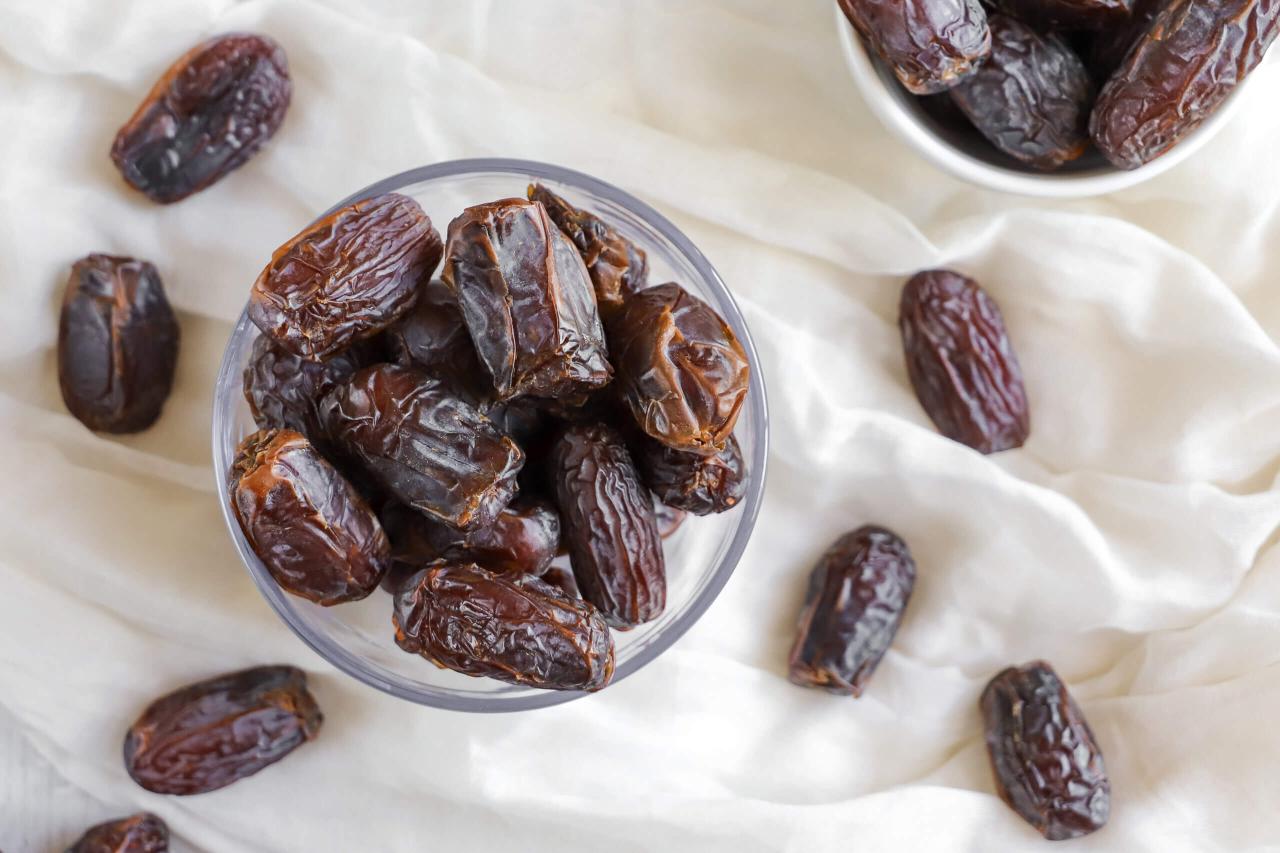
Dates can seamlessly integrate into various meals, adding sweetness, fiber, and a unique texture. Whether you’re looking for a quick breakfast boost, a satisfying lunch, or a delightful dessert, dates offer versatility and nutritional benefits.
Incorporating Dates into Meals
Dates can be incorporated into a variety of meals, from breakfast to dinner. Here is a table showcasing different ways to enjoy dates in various meal categories:
| Meal | Date Incorporation | ||
|---|---|---|---|
| Breakfast | – Add chopped dates to oatmeal or yogurt.
|
||
| Lunch | – Include dates in salads for a sweet and savory contrast. | – Stuff dates with nut butter or cheese for a satisfying snack.
|
|
| Dinner | – Use dates in marinades for grilled meats or vegetables. | – Add dates to sauces for a unique flavor depth. | – Incorporate dates into stuffing or pilaf recipes. |
Date-Based Dessert Recipe
Date and Almond Butter Energy Bites
These energy bites are a healthy and delicious snack or dessert. They are packed with energy-boosting ingredients like dates, almond butter, and oats. Ingredients:
- 1 cup pitted dates, chopped
- 1/2 cup almond butter
- 1/4 cup rolled oats
- 1/4 cup shredded coconut
- 1/4 teaspoon vanilla extract
- Pinch of salt
Instructions:
- Combine all ingredients in a food processor and pulse until well combined.
- Roll the mixture into bite-sized balls.
- Refrigerate for at least 30 minutes to firm up.
Ingredient Substitutions:
Dates Other dried fruits, such as figs, apricots, or raisins, can be used as a substitute.
Almond Butter Other nut butters, such as peanut butter or cashew butter, can be used.
Oats Other grains, such as quinoa or chia seeds, can be used.
Dates are a versatile snack that can be enjoyed on their own, added to smoothies, or even used as a natural sweetener in baking. If you’re looking for other healthy snack options, check out this list of 10 RD approved healthy snacks under 10 to keep your pantry stocked with nutritious goodies.
Whether you prefer to eat dates straight from the package or experiment with different recipes, they’re a delicious and convenient way to satisfy your sweet tooth while fueling your body with natural energy.
Incorporating Dates into Other Dishes, How to eat dates
Dates can be incorporated into a variety of other dishes, such as smoothies, salads, and baked goods.
Smoothies Dates can be added to smoothies for a natural sweetness and a boost of fiber. They blend well with fruits, vegetables, and yogurt.
Salads Chopped dates can add a sweet and chewy texture to salads. They pair well with leafy greens, nuts, and cheese.
Baked Goods Dates can be added to baked goods for a natural sweetness and moisture. They can be used in cookies, muffins, cakes, and bread.
Health Benefits of Dates
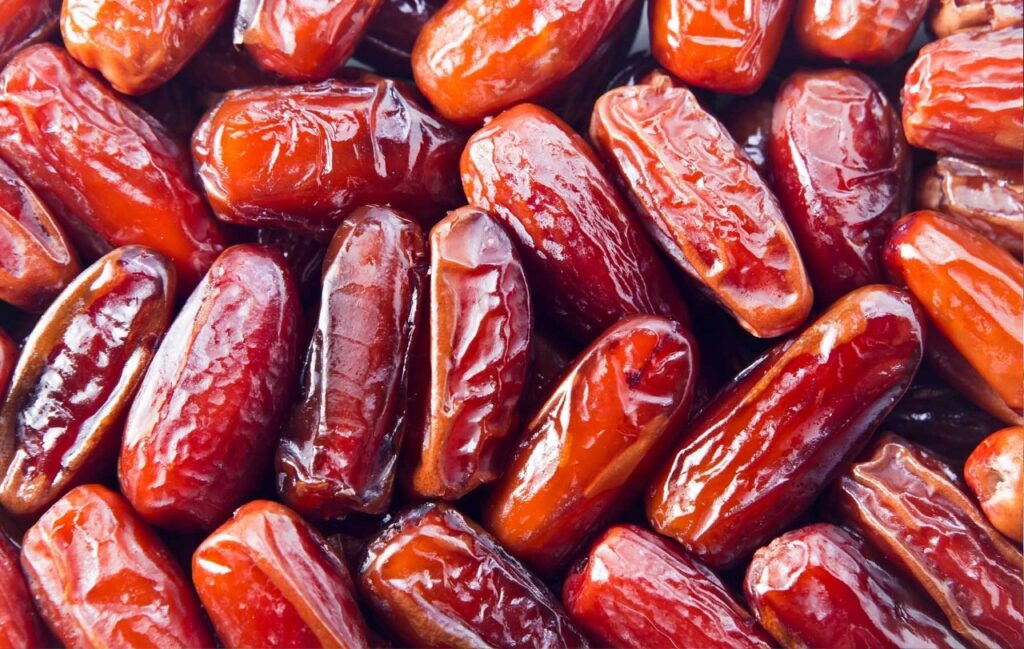
Dates are a nutrient-rich fruit that has been enjoyed for centuries. They are a good source of various vitamins, minerals, and antioxidants, making them a valuable addition to a healthy diet.
Energy Production
Dates are a great source of natural sugars, primarily fructose and glucose, which provide a quick and readily available source of energy. They also contain fiber, which helps regulate blood sugar levels and prevents sudden energy crashes. This makes dates a suitable snack for athletes and those seeking a boost in energy.
Digestive Health
Dates are high in fiber, which is essential for digestive health. Fiber promotes regular bowel movements, prevents constipation, and helps maintain a healthy gut microbiome.
Heart Health
Dates are rich in potassium, which is an essential mineral that helps regulate blood pressure and heart rhythm. They also contain antioxidants that help protect against oxidative stress, which can damage blood vessels and contribute to heart disease.
Potential Risks of Consuming Dates
While dates offer various health benefits, it’s essential to be mindful of their high sugar content. Excessive consumption can contribute to weight gain and increase the risk of developing chronic diseases like type 2 diabetes. Individuals with diabetes should consume dates in moderation and consult with their healthcare provider.
Nutritional Profile Compared to Other Dried Fruits
Dates have a higher sugar content than other dried fruits like raisins and apricots. However, they also contain a higher concentration of potassium, fiber, and antioxidants.
- Dates: 66% sugar, 10% fiber, 2% potassium, 1% antioxidants
- Raisins: 74% sugar, 4% fiber, 1% potassium, 0.5% antioxidants
- Apricots: 60% sugar, 8% fiber, 1.5% potassium, 0.8% antioxidants
Conclusive Thoughts
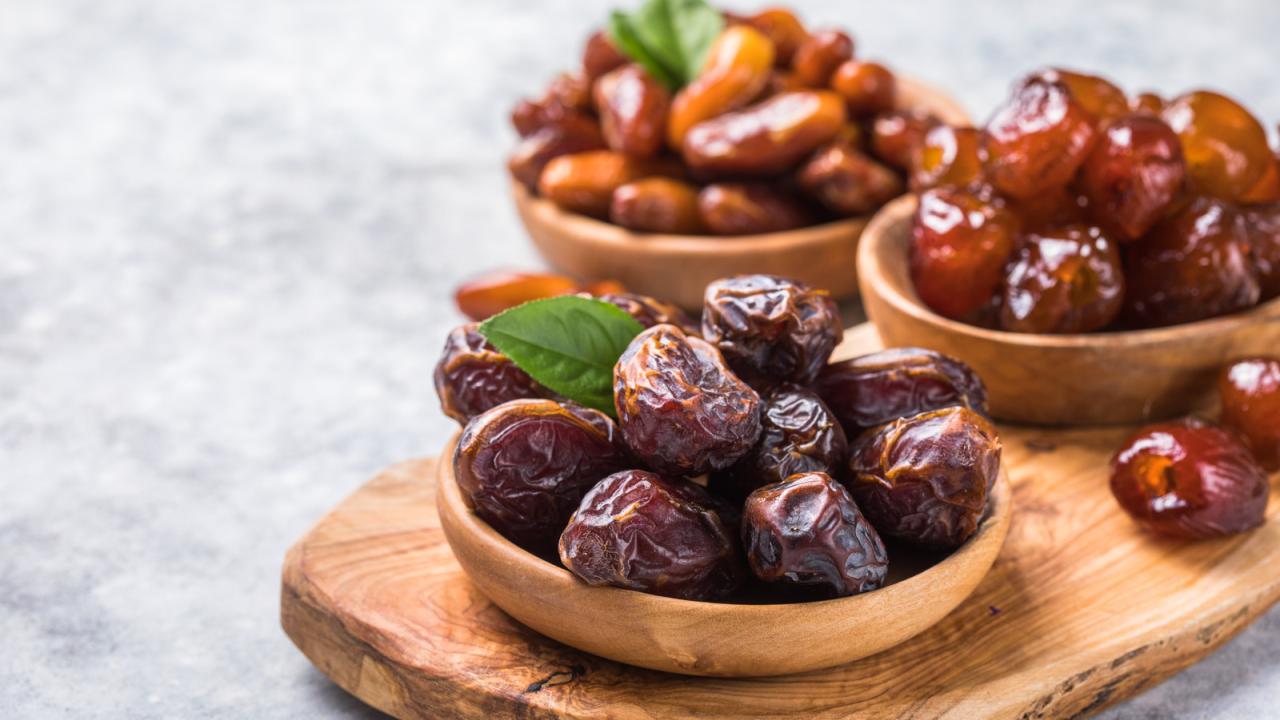
So, whether you’re looking for a healthy snack, a unique ingredient for your next baking adventure, or simply a way to add a touch of sweetness to your meals, dates are the perfect choice. From simple ways to enjoy them to more creative culinary explorations, there’s a world of deliciousness waiting to be discovered.
Embrace the versatility of dates and enjoy the sweet and nutritious journey ahead!



